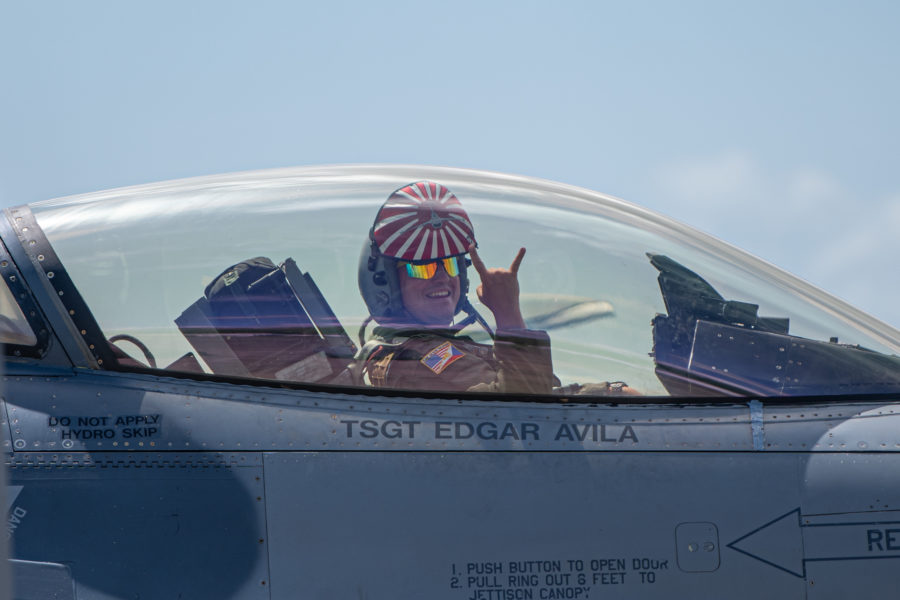As the Air Force battles a persistent pilot shortage made worse by aging training aircraft, the service has started approaching its current pilots earlier in their careers to offer retention incentives, hoping to convince them to stay in the military longer, Vice Chief of Staff Gen. David W. Allvin said May 2.
At the same time, the Air Force is set to launch a new program in the coming months that will offer bonuses and guaranteed assignment locations to selected pilots and rated officers.
In his written testimony for the Senate Armed Services Committee’s readiness subpanel, Allvin noted that the Air Force had a net loss of about 250 pilots in fiscal 2022 and ended the year 1,900 pilots short of its goal of 21,000. Commercial industry has been hiring at high rates coming out of the COVID-19 pandemic, and the U.S. Bureau of Labor Statistics projects continued demand through the rest of the decade.
Allvin was pressed by Sen. Mark Kelly (D-Ariz.) about why Air Force pilots choose to leave the service, especially those who do so after completing their initial 10-year commitment.
Citing an aircrew survey that was completed in March, Allvin named three main reasons aviators leave:
- Lack of a stable home life
- Money
- Duties that take away from flying—“Pilots like to fly,” Allvin noted.
USAF is trying to limit the frequency of deployments now that rotations to the Middle East have diminished, and is working to be more flexibility in where pilots are stationed, Allvin said.
“One of the advantages of technology is it allows us to be more interactive with the individuals in the assignment process,” he explained. “Before, the needs of the Air Force would shape your career. Now we have a talent marketplace where they can go out and at least provide some more input, have a little more agency in their future assignments.”
The Air Force’s main compensation lever is aviation bonuses, which paid out $15,000 to $35,000 annually, depending on skillset and contract length, under the fiscal 2022 bonus program. The updated rates could be out within a month, an Air Force spokesperson said.
The problem, Allvin said, is that pilots need to be incentivized to stay well before they reach the end of their 10-year commitments. For many, the bonuses come too late to change plans already years in the making.
“What we have done now is offered these incentives to them three years before the commitment is done,” Allvin explained. “Now, obviously, we’re asking for a longer commitment, but at that time, it’s helping them cement their future, see where their families are and have that predictability.”
Whether the earlier bonuses will make mid-career pilot retention easier is not yet clear. “We just started this,” Allvin said—but the service is optimistic that offering more stability will improve retention.
Other initiatives are also in the works. Sen. Tammy Duckworth (D-Ill.) highlighted a section in the 2023 National Defense Authorization Act directing the Air Force to establish a demonstration program to offer bonuses worth up to $50,000 annually and/or guaranteed future assignment locations to sweeten the pot.
Though Allvin offered no details, an Air Force spokeswoman told Air & Space Forces Magazine plans are being finalized and the new program should be ready to roll out this summer.
Additionally, an aircrew task force is working on “establishing holistic Total Force retention goals, integrated data-sharing, increased use of advanced analytical tools, consolidation of enterprise lines of effort, and continuous improvement to sustain a healthy crew force,” the spokeswoman said.

